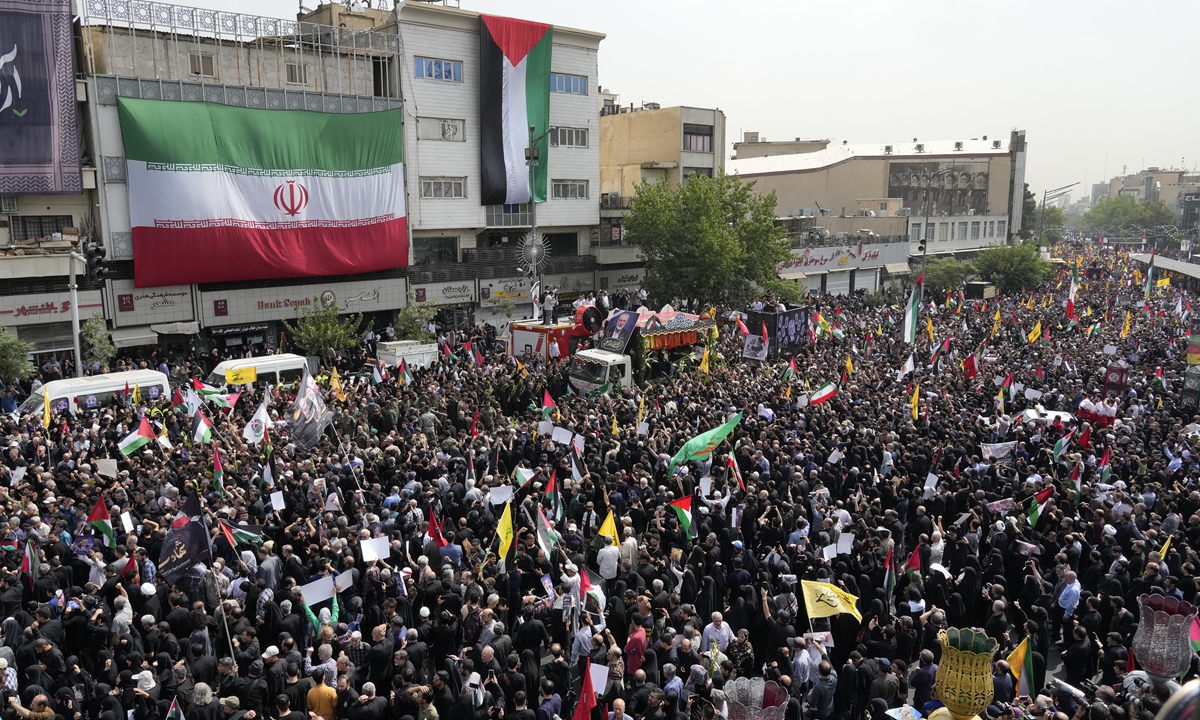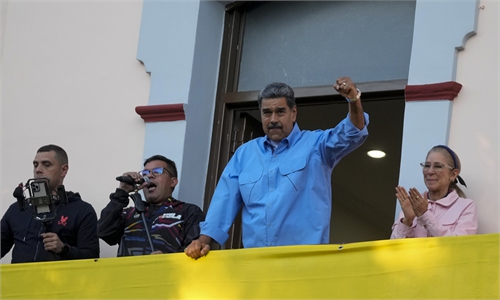Iran faces ‘difficult choice’ in potential retaliation
Israel assesses Iran to attack in response to killing of Haniyeh ‘in the coming days’

People follow a truck carrying the coffins of Hamas' political leader Ismail Haniyeh and his bodyguard who were killed in an assassination on July 31, 2024, during their funeral ceremony in Tehran, Iran on August 1, 2024. Photo: VCG
As Israel reportedly assessed on Sunday that Iran's retaliation could occur "in the coming days," experts said on Monday that Tehran has to strike a difficult balance, as it is expected to seek revenge on Israel while also treading carefully to prevent the situation from spiraling into a regional conflict, particularly to avoid a direct confrontation with the US.According to the Times of Israel on Sunday, Israel's current assessment is that "Iran will launch a direct attack on the country" in response to the assassination of Hamas political leader Ismail Haniyeh in the coming days. The attack may occur before ceasefire-hostage deal talks scheduled for Thursday, the report said, citing sources.
The Israeli media outlet also said the issue is divisive within Iran, as President Masoud Pezeshkian wants to "avoid a harsh response," while the Islamic Revolutionary Guards Corps wants to "launch a larger attack" than it did in April.
"For Iran, deciding the timing and scale of retaliation is a very difficult choice," Niu Xinchun, executive director of the China-Arab Research Institute of Ningxia University, told the Global Times on Monday.
"On the one hand, Iran wants its retaliation to be significant enough to deter Israel. On the other hand, Iran is very concerned about escalating the conflict into a full-scale one with Israel and the US," Niu said, noting that this is a highly difficult and highly risky balance for Iran.
Sun Degang, director of the Center for Middle Eastern Studies at Fudan University, told the Global Times on Monday that Iran is resolute in seeking revenge, no matter the means, but may be committed to a principle of avoiding escalating the situation into a regional conflict and steering clear of involving the US.
In another development, US Secretary of Defense Lloyd Austin spoke with Israeli Minister of Defense Yoav Gallant on Sunday, noting the strengthening of the US military force posture and capabilities throughout the Middle East in light of escalating regional tensions, per a readout from the Pentagon.
"The US is sending a clear message of unwavering support for Israel, while also serving as a deterrent to Iran. This means that any attack on Israel resulting in significant consequences will prompt the US to respond with political and economic measures against Iran," Sun said, adding that Washington actually does not want Iran to escalate the conflict in the region through its retaliation.
According to the Chinese Foreign Ministry, top Chinese diplomat Wang Yi on Sunday had a call with Iranian Acting Foreign Minister Ali Bagheri Kani, during which Wang emphasized that China firmly opposes and strongly condemns the act of assassination.



